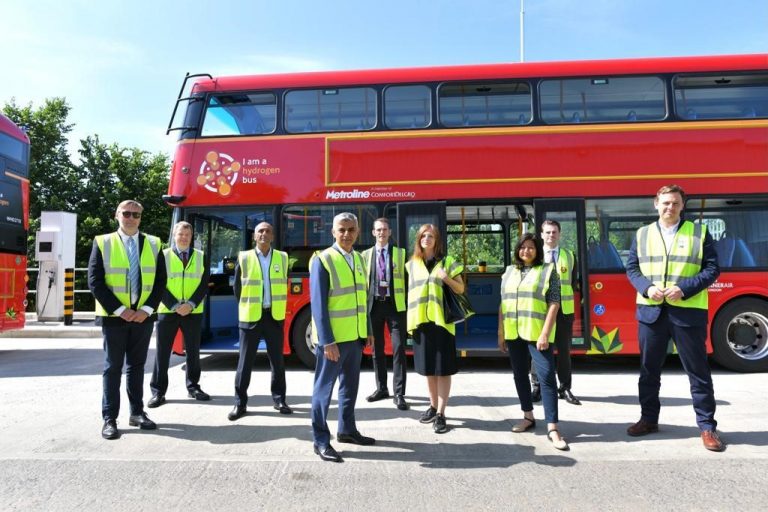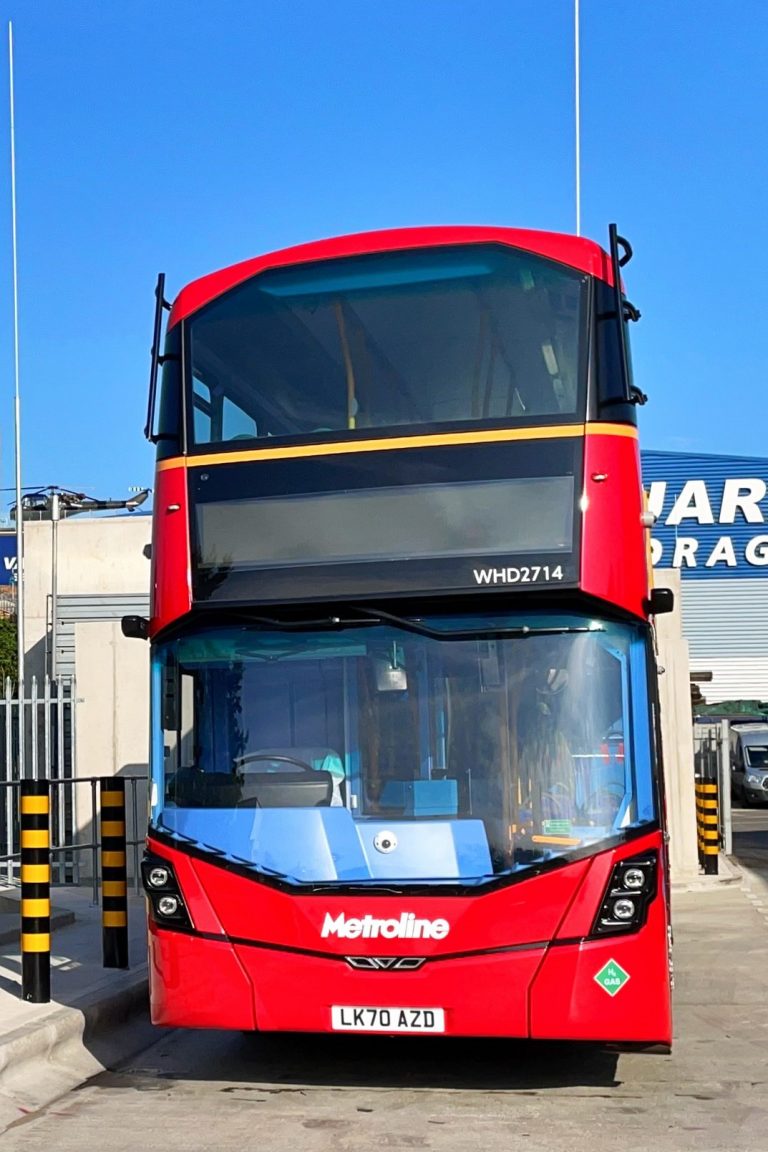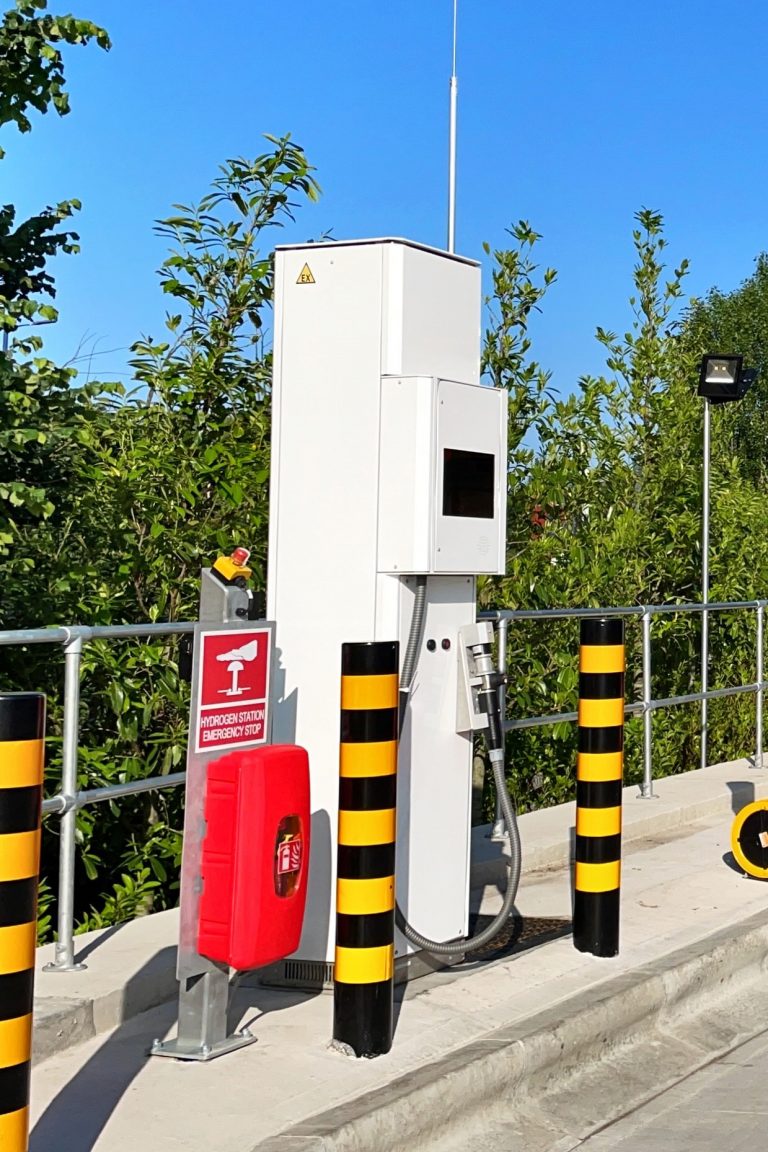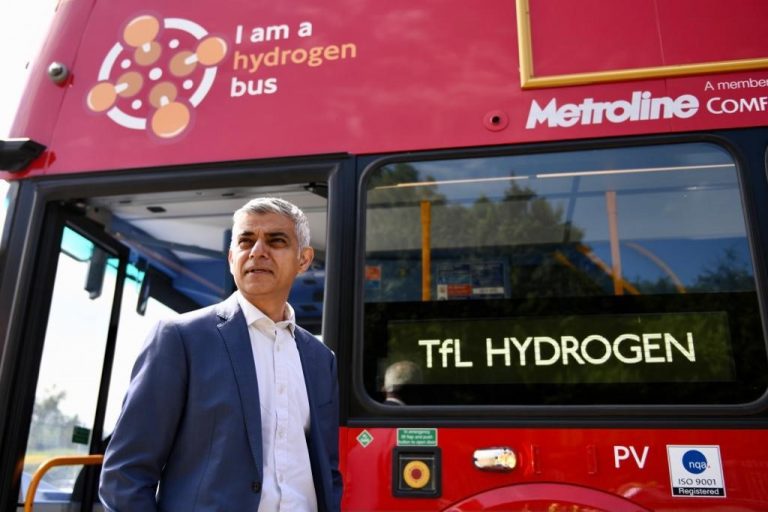We’re proud to have played a part in the first ever double-decker fuel cell bus fleet in England, launched on 23 June, 2021, in London by mayor Sadiq Khan.
The new hydrogen buses will join a fleet of over 500 battery electric buses to chase the goal of making all London buses zero emission by 2030.

Nel’s Jens Egholt Rasmussen was pleased to be present at the launch: “In May 2019, we were proud to announce a contract for a bus H2Station™ solution for London Bus Services Limited (LBSL). Ideally, we would have liked to launch earlier, but with travel restrictions and other complications due to the pandemic, the project had to adjust accordingly.
“It’s been impressive to see everyone coming together and finding solutions to a situation we’ve never had to tackle before. And I’m happy to confirm a dual bus H2Station™ has been commissioned and is now fully operational at the Metroline’s Perivale bus depot.”
While currently in the ramp-up phase, eventually, 20 buses will be fueled at the station on a daily basis. Hydrogen buses are already a competitive alternative to battery buses, with significantly faster fueling time and therefore, less downtime. They are also becoming more of a competitive alternative to diesel buses on a total cost of ownership basis.
The new environmently-friendly hydrogen buses will reduce London’s carbon footprint and harmful particle emissions. In fact, the only by-product from the buses is water from the chemical reaction of hydrogen with oxygen from the air.


Not only do the hydrogen buses help London with clean air, but they also support jobs and local economics across the UK. Wrightbus, situated in Northern Ireland, is the manufacturer of the buses. The hydrogen itself is being produced at a plant in Runcorn, and the Oxford-based Ryze Hydrogen is transporting the fuel to the fueling station at Perivale bus depot. The fueling station was developed by Nel.
The hydrogen buses will first be introduced on route 7 between East Acton and Oxford Circus.
At the launch, the mayor of London, Sadiq Khan, commented,
“These hydrogen-powered double-decker buses don’t produce exhaust fumes. Not only will they help clean up London’s air but they’ll give Londoners quieter, smoother journeys.”
